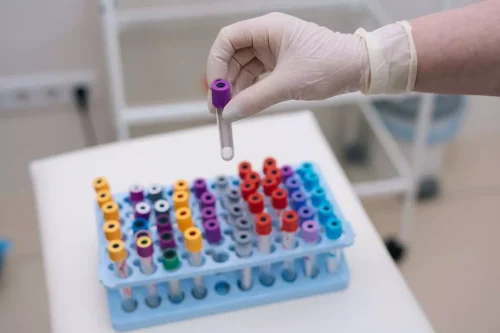Chưa có sản phẩm trong giỏ hàng.
Sober living
Substance Abuse Counseling: Definitions, Requirements and Finding a Counselor

Addressing such issues in advance ensures that the client will understand the counselor’s behaviors and will not feel ignored or abandoned. For example, a counselor may react to strong countertransference feelings by trying to respond to a client’s wishes and expectations. The counselor should guide clients in doing difficult interpersonal tasks themselves, not only to strengthen the clients’ ability to take responsibility for their lives but also to maintain important adult boundaries. The counselor must maintain a calm, optimistic interest in his clients, recognizing that getting overly involved will rob clients of the opportunity to identify and build upon their own inner resources. This is especially important for counselors who are themselves survivors of childhood abuse or neglect.
Major Depressive Disorder (MDD)
They are used primarily to proactively reduce anxiety symptoms and improve an individual’s ability to be present. The use of mindfulness in recovery has been researched for many years, and many have found it helpful during recovery. substance abuse counseling Beyond group therapy, individual therapy can incorporate various treatment models based on the counselor’s training and credentials. Get professional help from an online addiction and mental health counselor from BetterHelp.
Cognitive Behavioral Therapy (CBT)
Recognizing the signs of drug abuse and addiction and seeking professional help, such as counseling and therapy, early can improve outcomes and support recovery efforts. News and World Report recently ranked substance abuse counselor as #3 in Best Social Services Jobs and #34 in 100 Best Jobs, based on criteria including median salary, unemployment rate, growth and future job prospects. If you’re thinking about a counseling career, read on to learn more about what addiction counselors do and how they help to make a difference in peoples’ lives. Following the initial assessment, counselors develop personalized treatment plans tailored to your unique circumstances.
- DBT involves relaxation techniques, such asyoga, that help the patient become more aware of thoughts and emotions.
- Some states only require a high school degree and a certification in substance abuse counseling.
- Others may also have the expertise to treat co-occurring conditions such as depression or anxiety disorders simultaneously (dual diagnosis).
- A substance abuse counselor’s goal is to help a person live a sober and substance-free life.
- Clients may therefore be mistrustful and suspicious of the counselor, making the development of a trusting relationship a potentially long and difficult task.
- The information we provide is not intended to be a substitute for professional medical advice, diagnosis or treatment.
When the Client “Falls in Love” With the

Drug addiction, or substance use disorder (SUD), is a chronic disease characterized by the compulsive use of substances despite harmful consequences. There are various types of drug addiction, including addiction to alcohol, nicotine, opioids, stimulants, and depressants. A meta-analysis of studies on meditation published in Alcoholism Treatment Quarterly found that the technique can reducestress, anxiety, tobacco smoking, and alcohol anddrug abuse. Additionally, a clinical trial on mindfulness therapy published in the Journal of Consulting andClinical Psychology found yoga was a feasible and effective treatment for opioid abuse and chronic pain. Therapists use brief strategic family therapy to reduce family interactions that support or exacerbateteen drug abuse or problematic behavior.
- The community reinforcement approach plus vouchers is commonly used on an outpatient basis.
- These clients are often mistrustful at the same time that they need a trustworthy relationship, and a “push-pull” dynamic may result.
- Counselors work with individuals, families, couples, and groups to share a variety of techniques and treatments for coping with problems in ways other than turning to unhealthy substances.
- After this initial assessment, the addiction counselor will begin discussing goals the individual would like to achieve and potential needs that the counselor has observed.
- Motivational therapies are the second-most-common therapies used by drug rehab facilities.
Postpartum Depression
Prize-based incentives reward drug-free screens with a chance to win a prize by drawing from a bowl. Some experts worrythat prize-based incentives might promote gambling behavior, but studies do not show an association between the therapyand gambling. The therapies incorporate vouchers or chances to win prizes to promote abstinence. Voucher-based therapy involves rewardingclean drug screens with vouchers that can be exchanged for food, movies and retail goods.
SAMHSA National Helpline
The counselor must be aware of and prepared for possible responses of this sort and must work to bring them to clients, attention for discussion. The counselor must also avoid replicating relational patterns from the past even if clients expect them and act in ways to encourage them. For example, the counselor should not allow clients to be overly caretaking toward him, nor should he be so overinvolved with clients that objectivity is lost.
- Those counselors who overinvest, on the other hand, become extremely involved with their clients, going beyond the appropriate boundaries of the relationship.
- By considering each person’s unique history, needs, and circumstances, personalized treatment plans can enhance engagement, improve outcomes, and provide comprehensive, culturally sensitive care.
- When you graduate, you’ll have the training and real-world clinical experience you need to succeed in your field.
- For example, counselors may find it difficult to relate to clients effectively and to reach a balance of providing enough–but not too much–support and distance.
- These are therapeutic issues to be addressed in the group that can contribute to the clients’ healing from the effects of abuse (Briere, 1989; Courtois, 1988).
What do substance abuse/addiction counselors do?
The goal of FFT is to improve communication, problem-solving skills and parenting skills. Motivational therapies are the second-most-common therapies used by drug rehab facilities. The therapies help patientsfind internal motivation to begin or continue treatment.

But there are other reasons a graduate program is your best option if you’re looking for a long-term career in the substance use disorder (SUD) counseling field. You will gain valuable real-world experience working with highly qualified counselors. They may provide individual counseling, lead group therapy sessions, and intervene during crises. Sometimes this may involve being on-call and working weekends, evenings, and nights. These professionals work with individuals who experience a range of substance use issues.

When starting addiction counseling, the counselor will ask a variety of questions focused on things like family history, childhood experiences, life skills development, and other life experiences involving substance use. They will also review medical history, mental health conditions, family support, relationship dynamics, relapse potential, and external stressors such as finances or legal system concerns. If you are learning about the substance abuse counseling field, we suggest starting with the basics. And as mental and behavioral health awareness continues to grow, along with access to treatment, so does the demand for qualified substance abuse counselors, also known as addiction counselors.

